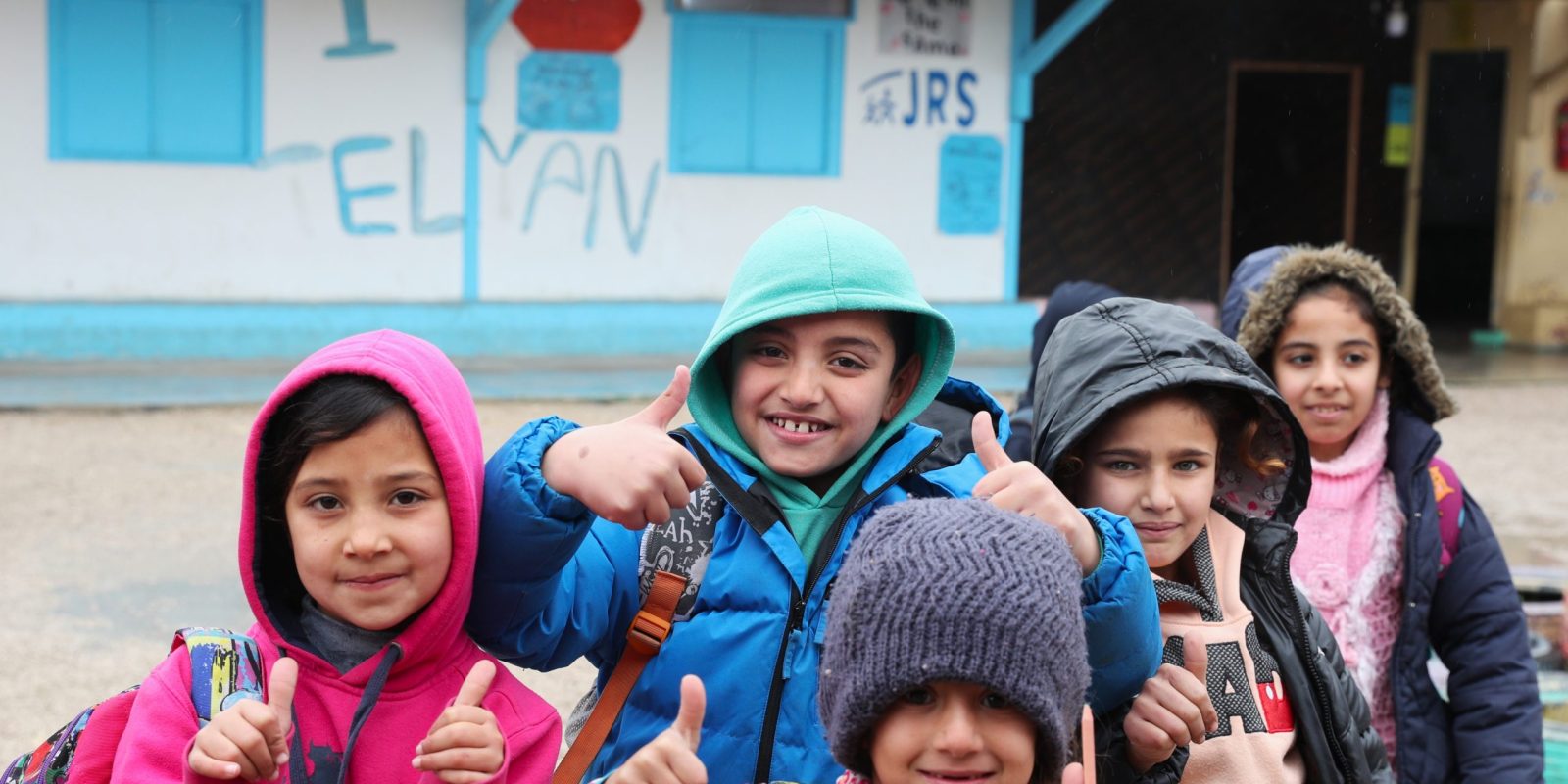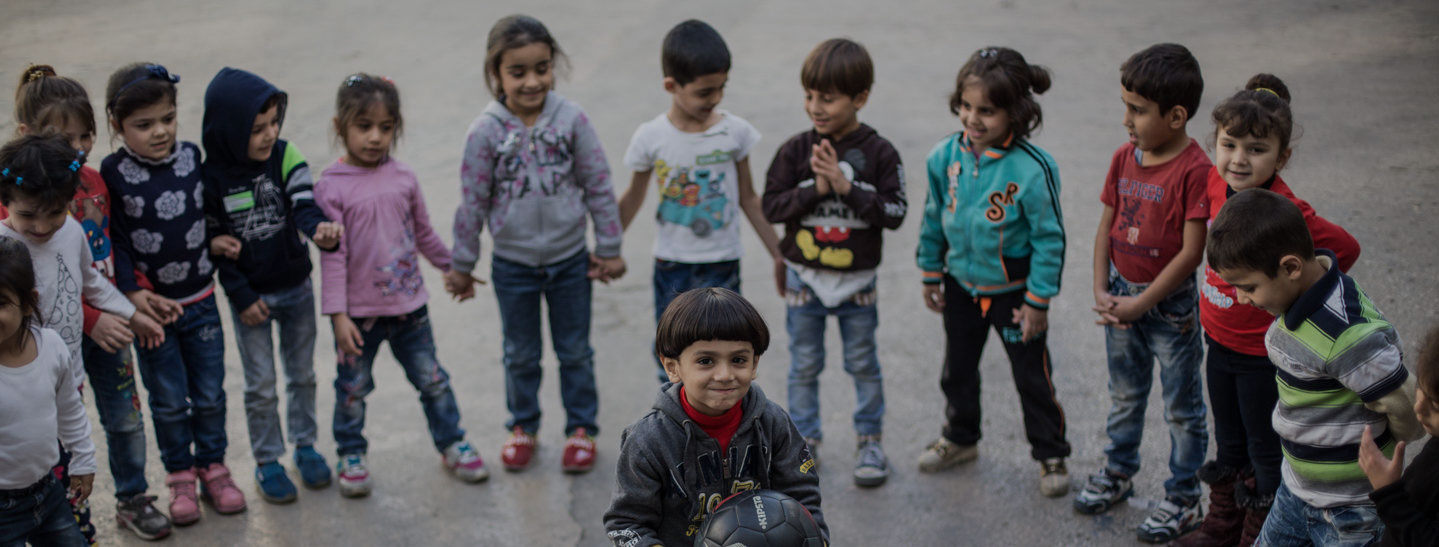Jalal’s transformation: Overcoming challenges with support and determination
06 February 2026
Jalal, a resilient six-year-old boy born in Lebanon in 2017, faced significant obstacles in engaging with his environment due to challenging behavior. His family had left Syria almost nine years ago, seeking refuge in Lebanon amid the Syrian conflict.
While life in Syria had been comfortable, the transition brought its share of problems. Jalal’s parents, who were cousins, maintained a loving relationship, but his father’s demanding job and long working hours often left his mother alone with their children for extended periods, leading her to exhaustion and stress. This situation contributed to Jalal’s irregular social development and aggressive behavior.
However, Jalal’s life took a positive turn with the help of JRS Lebanon’s educational initiatives and psychosocial support. Through these interventions, Jalal began to improve his ability to interact with others, leading to strengthened social connections, psychological stability, and greater engagement.
Enrolment in JRS Educational Programs
Although Jalal was an intelligent child, his impulsive, aggressive, and undisciplined behavior affected his performance at school and his relationships with teachers and classmates.
Today, Jalal attends the JRS CBECE (Community-Based Early Childhood Education) program at the Nicolas Kluiters Centre (JRS Jbeil – Lebanon).
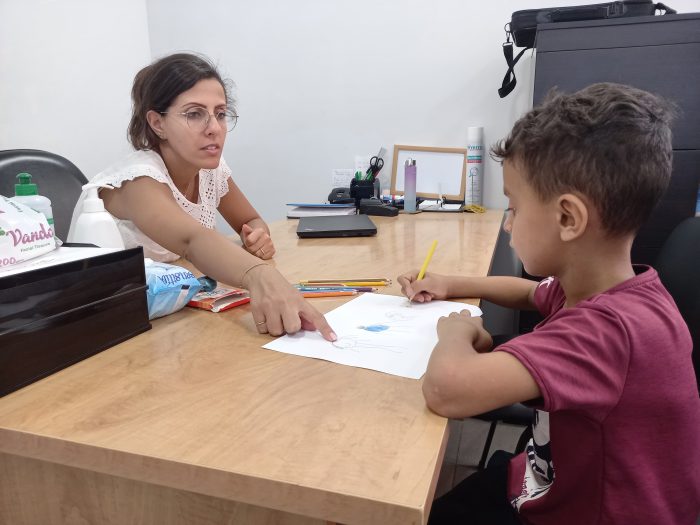
Psycho-Social Intervention
In October 2022, Jalal became one of the children referred for MHPSS (Mental Health and Psychosocial Support) services provided by JRS Lebanon. The initial evaluation involved closely monitoring Jalal’s behavior and working closely with his parents.
During the first meetings with Jalal’s parents, they described him as “impulsive, short-tempered, and aggressive since his toddler years, much like his mother”. Mentioning that “all of the kids he was playing with frequently complained about him punching or pushing them”.
His mother admitted to using threats and punishments as a means of discipline, while his father acknowledged a dangerous incident involving Jalal’s behavior. He reported that his son pushed another kid in the building where they lived, resulting in him falling to the ground from the upper floor and being hospitalised, describing his son’s behaviour as dangerous.
Based on the JRS team’s assessment, it was decided that a collaborative approach involving a psychologist, school principal, social worker, and teachers would provide the most effective and rapid results. And in order for things to go smoothly, parents were also included in the plan.
The psychologist worked with Jalal to clarify school rules and develop a strategy to help him control his anger and emotions, such as asking the teacher/surveillant for assistance anytime he gets overwhelmed so that he can leave class to wash his face or go for a short walk. She also assisted him in naming his emotions and understanding them.
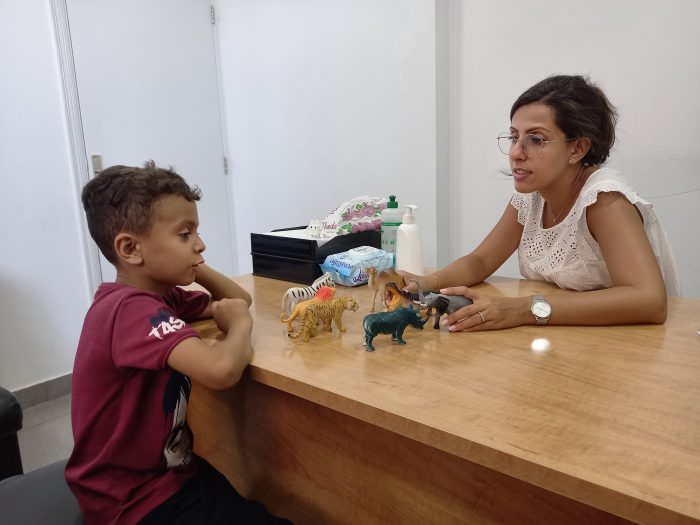
A special chair and table designed and decorated by Jalal were placed near the teacher to boost his confidence; he was seated alone in the front row to minimize distractions. A behavior chart was designed with the social worker to help him track his behavior and encourage self-control. His teachers actively involved him in daily tasks and appointed him as a “Shadow Teacher” to foster empathy and understanding of classroom regulations.
Within weeks of implementing the plan, Jalal’s behavior began to show improvement. He became more capable of naming his feelings, and his impulsive behavior became manageable. Although occasional challenges persisted, Jalal’s progress was evident both at school and at home.
“I was in charge of distributing the sandwiches today, and I made sure everyone got his. I also assisted the teacher in distributing folders and erasing the board, but I disrupted the class,” Jalal remarked.
Both his teachers and parents agree that Jalal’s behaviour has gotten better; they can see significant improvements in both his classroom and home behaviour. They also noticed how much he enjoys assisting them with daily tasks: “he loves to help and to feel responsible.”
Gratitude and Transformation
When asked about the change in his life, Jalal expressed joy in playing with friends without resorting to aggression. He eagerly participated in all activities and felt happy about going to school each morning.
“I’m doing well in class, and I’m not hitting any of my classmates anymore,” Jalal said. “It’s all good now; we’re having a nice time, and no one is judging my behaviour. I didn’t want to make friends at the beginning of the school year, but things have changed for the better”.
Moreover, his family conveyed their deep gratitude for the educational and psychosocial services that had positively transformed their son’s life, allowing him to engage more effectively with his surroundings, including friends and family.
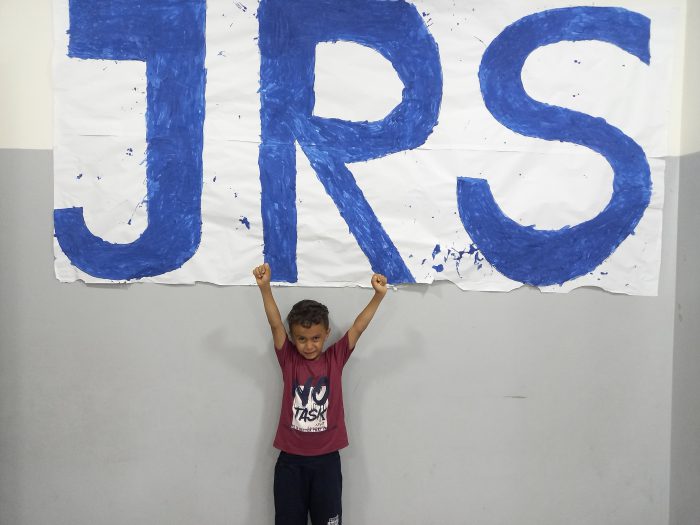
Jalal’s journey exemplifies the transformative power of psychosocial therapy. With the support of his family, JRS educational programs, and dedicated professionals, he overcame the difficulties arising from a challenging home situation. Jalal’s story is a testament to the positive changes that can occur when individuals receive the necessary support and guidance to enhance their psychological well-being.
His success story is just one of many, highlighting the commitment of JRS Lebanon to help students overcome their unique challenges, ultimately improving their psychological and emotional health. Each child’s journey is unique, but Jalal’s experience serves as a shining example of what can be achieved through resilience, determination, and the support of caring professionals.
*Name has been changed to protect privacy.
Additional activities are displayed on our social media platforms.

